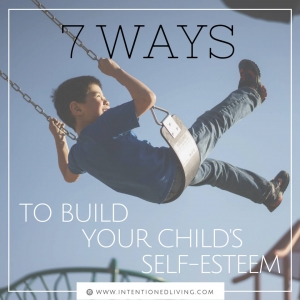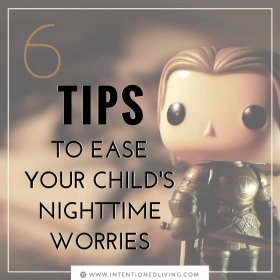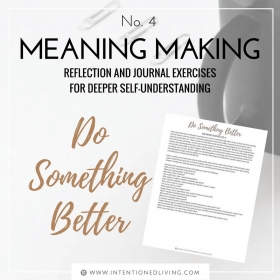
Self-esteem, and building it, is an important factor in raising confident children who will have the ability to face life’s challenges. Parents want their children to be mentally strong because we want them to be healthy and happy human beings. We want them to have all the opportunities that they can, and we want them to be successful in what they set out to accomplish.
Parents are also concerned about their child’s self-esteem because they fear that their child will not have “what it takes to make it”. They fear that their child will get bullied by other kids and then in turn will grow up to be an adult who gets taken advantage of in relationships, at work, and generally in life. Parents fear that if their child has low self-esteem they won’t be professionally and financially successful. When this happens, parents can then lead themselves to self-blame, feeling guilty, and into a pattern of having high anxiety and worry about their child’s future.
Let’s take a look at self-esteem. Merriam-Webster Dictionary defines self-esteem as : a confidence and satisfaction in oneself : self-respect.
Self-esteem is made up of our feelings, and our ideas and thoughts about ourselves. It is based on a complex mix of experiences and the meaning given to those experiences. We all interpret experiences with our own unique perspectives. What can be a “self-esteem boosting” experience for one person, can be a “self-esteem depleting” experience for another.
When we pass into adulthood we’ve heard the term enough to know that self-esteem, high self-esteem more specifically, is something that we should possess to be healthy individuals – who are satisfied with life and oneself. In childhood, children instead experience self-esteem as something that either feels good or doesn’t. Not being able to hit the baseball doesn’t feel good. Not getting a good grade on a project doesn’t feel good. Peers choosing to hang out with another group of kids doesn’t feel good.
Now insert the child who has higher self-esteem – this child would take notice but likely would put a certain meaning and more positive or neutral spin on these experiences such as “It’s ok, that was a tough pitch. I’ll get it next time.”, “I tried my best and next time I’ll do better.”, and “I’ll catch up with them next time. I’m going to do this other thing I enjoy.”.
On the flip side, the child with lower self-esteem would have a lot of negative self-talk getting in the way. Messages like, “I’m terrible”, “I suck”, “I’m stupid”, “I’ll never be good at anything”, take over their view of themselves. They become overcome with a lack of confidence, lack of satisfaction with themselves, and can end up being harsher on themselves than even their harshest external critic.
Signs of Low Self-Esteem in Children
- Negative self-talk
- Anxiety about a number of things and experiences
- Social anxiety
- Sadness and depression
- Isolation and withdrawal from activities and people
- Hesitancy or refusal to do things, especially new and unfamiliar things
- Hesitancy or refusal to be in new environments and places
- Fear of judgment or ridicule from others
- Misinterprets benign comments as negatively directed towards them
- Highly critical of others and quick to point it out
- Unable to accept praise and positive feedback
- Irritable and highly sensitive
Seven Ways to Nurture Your Child’s Self-Esteem
1. Give praise but make it appropriate in timing and intensity.
It’s important that we provide positive feedback to children but it’s best when it is tied to actual accomplishments and strengths. When we give an overabundance of positive feedback for pretty much anything a child does, the child is less likely to accurately judge their own performance and abilities.
2. Don’t compare. Instead cherish uniqueness.
Sometimes as an attempt to encourage a child it can be tempting to compare the child to other children, though this can have the opposite effect of discouraging especially the child with low self-esteem who is already overly focused on their self-doubts. They are already internally comparing themselves to others so bringing it to the surface can make them embarrassed and contribute more to a negative belief about themselves. Instead, keep the comments focused on the child and highlighting their own unique strengths, abilities, and gains (no matter how small)
3. Encourage and provide opportunities for them to try new things.
Sometimes it is the just right setting with the just right people doing the just right thing that helps foster more confidence in children. It’s important for self-doubting children to have new experiences in which they can be successful. The key word here is “encourage”. Forcing a child with low-self-esteem to “just get over it and try it” can be a no-win battle.
4. Play on their natural strengths and talents.
When thinking about tasks to give them at home, use their natural strengths and talents. For example, if your child has a knack for organizing then give them the task of organizing the pantry or a junk drawer. If they are good at cooking then give them the responsibility of helping prepare meals.
5. Support them in doing more of what brings them joy.
Find out what your child is good at and enjoys and find ways for them to do more of it. Because it is an activity that they enjoy, they are more likely to stick with it even at times when they reach a roadblock of some sort. There is a double advantage here because activities we enjoy foster our self-esteem and self-esteem in turn fosters us to do that activity more and to get better at it. Here, it can be a win-win.
6. Surround them with people who know they’re awesome.
Keep tabs on people (both children and adults) that your child interacts with and make sure that they are surrounded by positive influences. Surround them with people who can be understanding and patient when they are anxious, hesitant, and self-doubting. Do your best to encourage those relationships to grow more. Set play dates and opportunities for your child to spend time with these individuals.
7. Be mindful of your part in it.
Most important, be aware of your own role and reactions in this process. Do your best to be patient and keep calm especially at times when say, your child is being overcome with self-doubts at inconvenient times. At times when they are being so overwhelmed by the anxiety that they are causing a scene in public, making you feel embarrassed and shameful. At these times it can be challenging to keep control over our negative feelings but do your best to be mindful of what would help resolve the situation as opposed to create more difficulty. You want to show them that the situation is not as stressful as they are currently feeling. You want to be their #1 advocate and support.
In summary, the construct of self-esteem and it’s formation, and how it ebbs and flows is a process. We all experience times in our lives when our self-esteem takes a dip, it’s natural, we’re human. Kids are no exception to this process so be kind and compassionate because what may appear to us adults as challenges that can be easily overcome, these challenges are in fact difficult to them. It is their task to build their self-confidence, self-esteem, and self-respect though we as adults can surely give them tons of help along the way.








